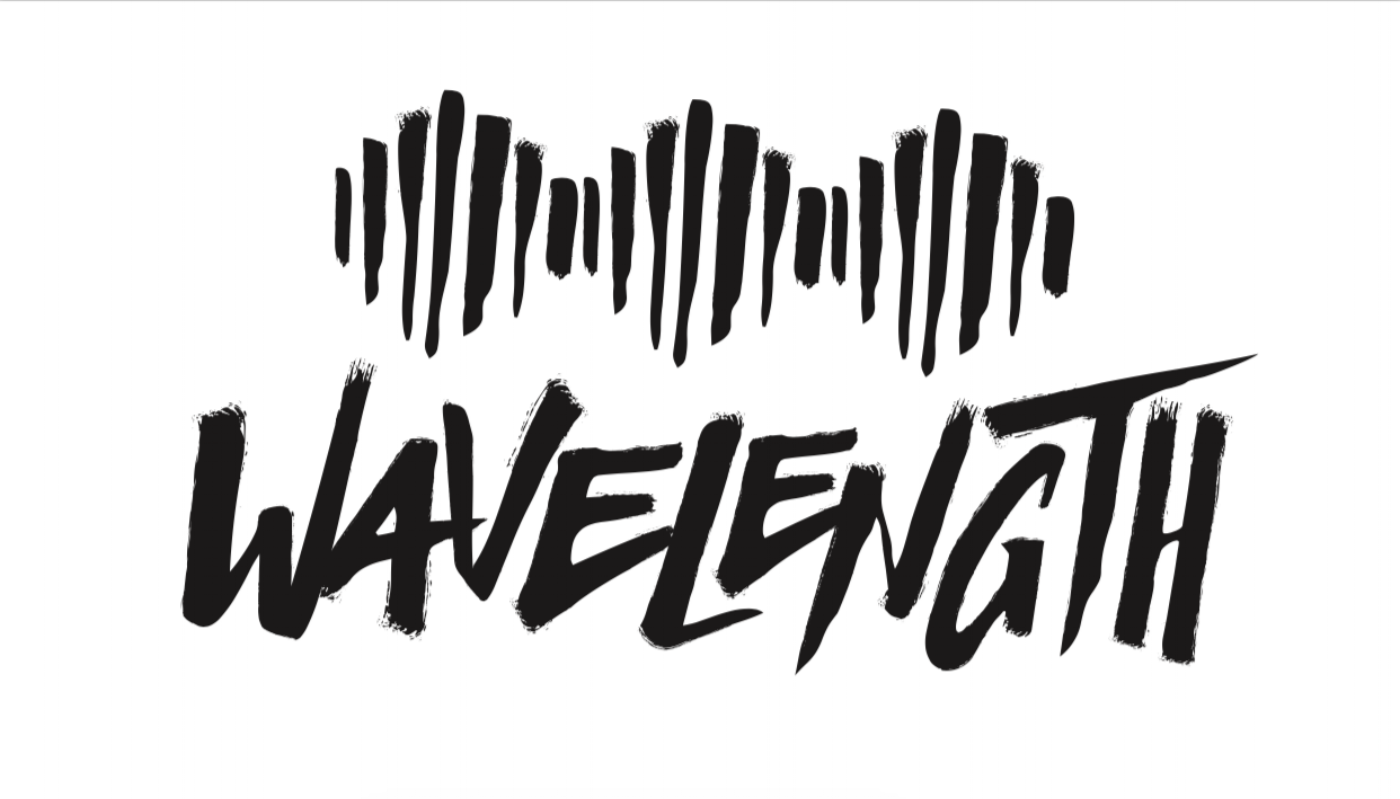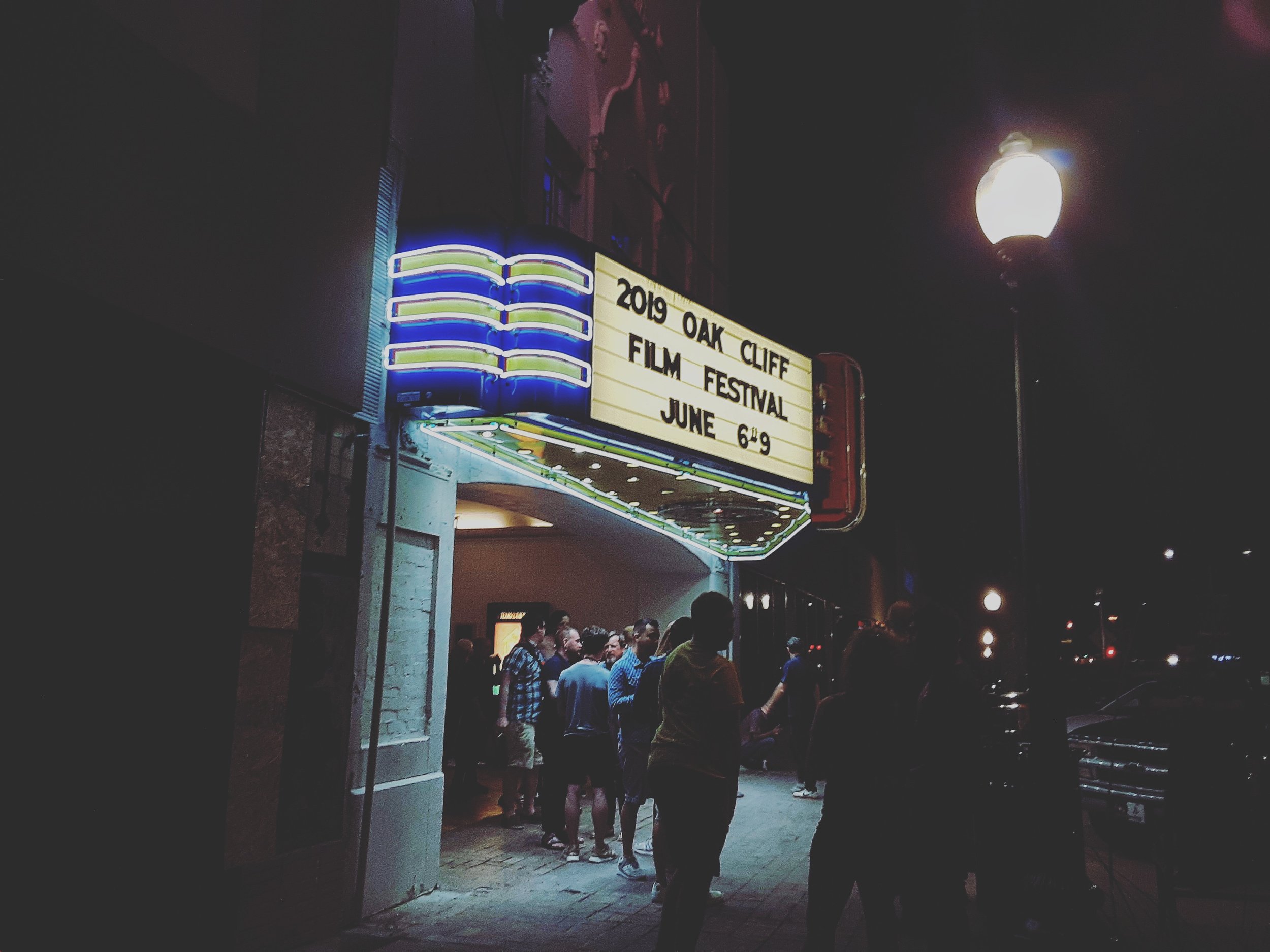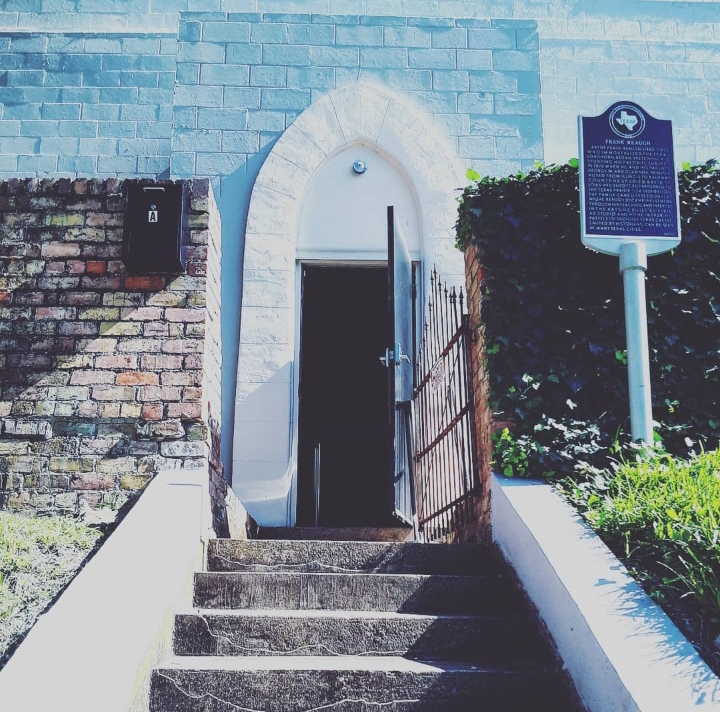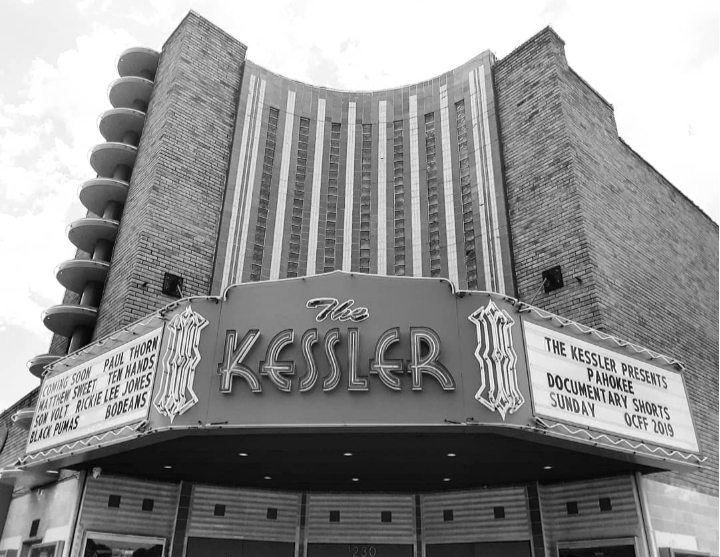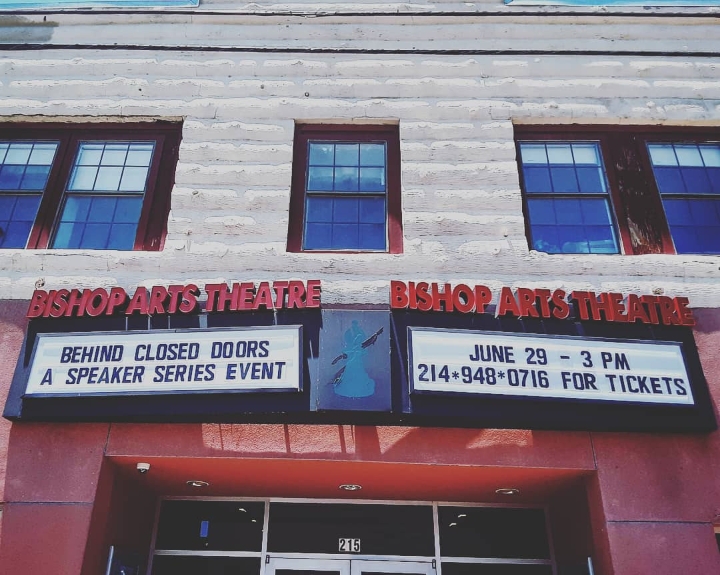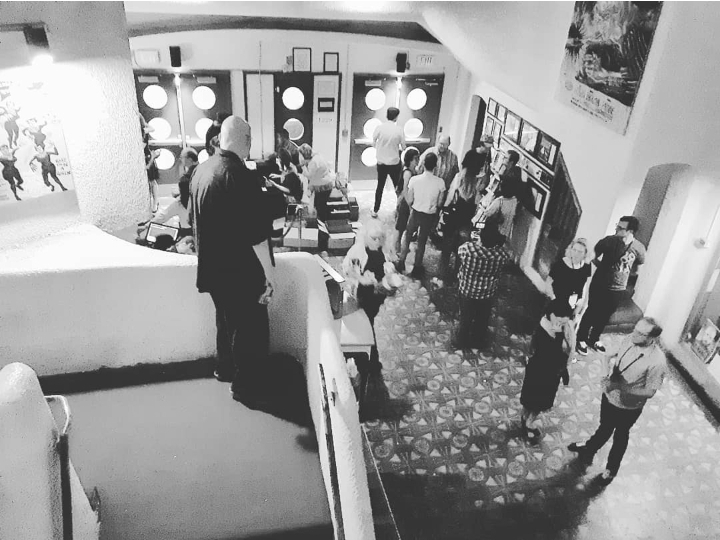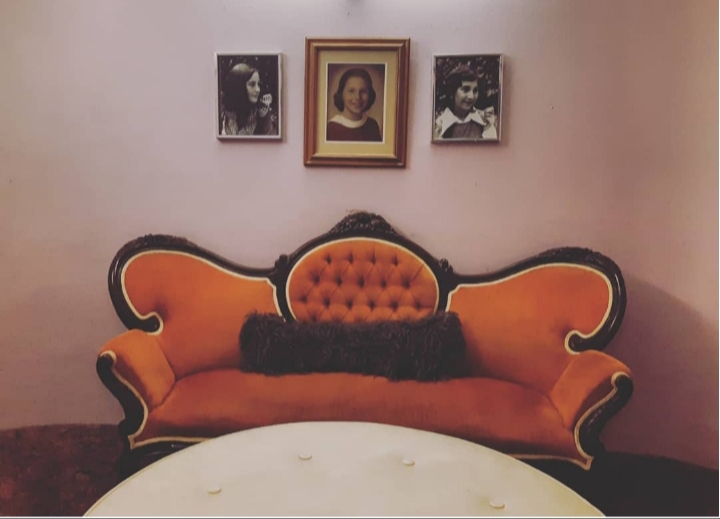Oak Cliff FIlm Festival | A Conversation with Co-founders Barak Epstein and Jason Reimer
On the last day of the Oak Cliff Film festival, co-founders Barak Epstein and Jason Reimer sat down with Wavelength to talk about this year's festival, and the role the Texas Theatre plays in Oak Cliff and the city of Dallas.
Brittany Griffiths | 12 June 2019
photo by Brittany Griffiths
The 8th installment of the annual Oak Cliff Film Festival (OCFF) ran last week from June 6th through 9th, and aside from a very minor hiccup due to freak weather on Sunday, went about as smoothly as any festival could go. From the jovial and always courteous nature of the staff to the welcoming atmosphere present at each and every venue, the OCFF provided a wonderful weekend-destination spot for out-of-towners and locals alike interested in catching a diverse, curated selection of indie feature films and shorts.
The Oak Cliff Film Festival was co-founded by Barak Epstein and Jason Reimer of Aviation Cinemas in 2012, just two years after they took over the Texas Theatre. Barak and Jason met in 2010 back when the Oak Cliff Foundation, a non-profit, neighborhood organization, used to own the theatre. While under their ownership, the Oak Cliff Foundation’s main goal was to preserve the theatre and to find ways to raise money to help restore it. At the time, Jason had been involved with the foundation for about a year and was working with other members to foster programming for art house film screenings and to host events at the theatre. Soon thereafter, Barak caught wind of the work being done to restore the theatre and met with Jason to discuss ideas on what the space could potentially be. When the two sat down and began talking, it became apparent that they shared a common vision for its future, and come winter of 2010, the Texas Theatre was reopened under their leadership.
The initial plan that Barak and Jason developed always involved showing independent films that weren’t being shown other places. However, there were many challenges to forging a space for independent films to be shown all-year-round. "We quickly realized that it was hard to get people out to see a movie no one has heard of at 9 o’clock on a Wednesday," says Barak, "so we kind of reformed that part of the concept into doing a film festival. We could bring in a lot of these smaller films and a lot of other bigger films and mix them into one kind of targeted, four-day weekend." Thus began the idea for what is now the Oak Cliff Film Festival.
On Sunday afternoon at Texas Theatre...
I met up with Barak and Jason to talk about this year's program, the changes they've witnessed over the last eight years, and some of the challenges they've faced in running a regional film festival.
Wavelength: What do you guys think has changed the most from that first year?
Jason: I mean, it just runs better in some ways. And it didn’t run badly the first couple of years either, but we really wanted to keep the architecture. The architecture of the festival we really refined the first few years, so we want to keep that going and just keep that machine oiled. The programming just continues to get stronger, and I think this year it's the best it’s ever been by far. But every year it’s always ticked up a little bit because people are a little more aware of us and that our curation has more films to choose from, so it’s just gotten stronger. We’ve kept it at the same amount of venues mostly. We don’t really try to expand that footprint too much. So, it’s not wildly different than it was the first few years, I just think we have better things and more to offer in those same venues that we always did it in.
Wavelength: [In the beginning] did you guys make the film circuits and do some research to see who else was doing what, and did you have any other film festivals that you kind of based the structure [of OCFF] off of?
Barak: Well – there’s a couple things: we go to other big film festivals to look for films, and that’s kind of what a lot of festivals do is they look for the big films that are premiering at whatever film festivals; and then we also have open submissions for all sorts of films. But in terms of trying to model what we’re doing, we might look at Sundance’s program, but we don’t think we’re trying to be Sundance. So, we look at other smaller, regional film festivals that do a good job of highlighting particular parts of the neighborhood or being great with hospitality and bringing in filmmakers.
Jason: Sidewalk, and Maryland, and Cucalorus...
Barak: All these great kinds of regional fests are ones we’ve always admired.
Jason: And they [the regional film festivals] were pals with filmmakers that had already been familiar with the theatre, were aware of the Texas Theatre, so we had some kind of help of how to get it up on its legs, and we’d been doing events here for two years at that point. We kind of just picked a handful of venues that were places that we could do what we were doing here, and do it there, and keep it controllable and small, and like I said, we’re not trying to be Sundance or something like that. We’re just trying to be a neighborhood festival and make sure that each block is curated, and tended to, and small enough to control.
Wavelength: So, the two of y'all take a pretty hands-on approach for curating the films and the events?
Barak: Well, we also have a whole team of programmers, you know, it’s not just us.
Jason: In the beginning it was, but now we have a ton of people who help out.
Barak: And it’s not even just all local, we have Amanda Salazar from the San Francisco International Film Festival this year. We have Eric Hatch from the Baltimore area, also Parker May (local), and Jeremy Bartel. So we have a whole crew of people.
Jason: We had Emily Best last year. Brandon Harris has done things with us before. Every year we try to bring in, you know, people who are from that world.
Barak: And get different perspectives... so it’s not just one person or two people. We want to have lots of different people helping and finding films. We have someone who just specializes in experimental programming on our team. So, we have lots of different curators and programmers.
Wavelength: One of the things I noticed this year, and I’m not sure if this has been reflected in other festivals, but there seems to be a large representation of women filmmakers and women in film. Was that a conscious decision you guys made this year?
Jason: It’s not – I mean honestly, I think what we are proud of is that that is not a shift for us. We’ve always been a very diverse programming group. We’ve always tried really hard to keep digging for things that are not easier to spot than others. So, we’ve always had a strong female presence in our programming staff and our internal staff. To my knowledge, we’ve always had a pretty diverse schedule.
Barak: But also, more women are making films and they’re making films with budgets and playing bigger festivals and they’re getting them out there. They’re making more films, so we’re showing more films. This year, and last year, both our opening night and closing night films were directed by women. You know, Lynn Shelton’s (Sword of Trust) film is playing right now.
Jason: I think three years ago, when you look at it, this is when it happened and #metoo and all these things started happening, and we hadn’t really had any strategic conversation about this stuff. We just realized that our film fest that year was 50% women directors. Which wasn’t by design. It was that, just naturally, there were more people to choose from. And, if you have the right mindset, you’re going to choose the best films. So, we don’t normally lead with, “We’ve got to go find more women,” but if you are looking for these things, and diversity is just part of your natural strategy, then you’re going to have more to choose from.
Wavelength: What’s the percentage of Dallas filmmakers, or films that tie back to Dallas, that are represented at the film festival?
Barak: We have several local films – Jules of Light and Dark – which is playing today, and Satanic Panic is a big local film.
Jason: And Daniel Laabs (director of Jules of Light and Dark and programmer with DIFF) has worked for us before. Daniel has been around this film scene for a long time, so he’s well-known in the community.
Barak: And then we have several shorts, but those were the two big features. But also – the film Light from Light wasn’t shot here, but it was kind of produced out of Dallas and it was finished in Dallas, so we kind of call that one sort of a Dallas film. And Greener Grass, not Dallas at all, but maybe thematically.
Jason: The star, the young Julian Hillard... he’s from Dallas, and he’s going to be a big deal soon. I don’t know what the percentage is, but we always have at least 5-10 locally tied films.
Wavelength: Another one of the things that you guys do, that I think is great, is your way of blending different art forms in with all of the curation you guys do here. Especially having live performances behind the screen. Do you think that has helped to make the festival and Texas Theatre more successful overall?
Barak: Yeah sure, I mean the days of just throwing something up on the screen and walking away are just… that’s not what we do, right? So even at the Texas Theatre in the everyday, often there’s an after event, or tie in, or there’s ballet or there’s a band or a DJ. There’s always something that’s not just the movie and that’s it. So yeah, we like mixing those things.
Jason: I mean, if you want to watch three or four films a day, and that’s it… that’s exhausting for most people. So, it’s nice to kind of give them a few things. Like the cocktail hour, which was just supposed to be that first year, has become a really popular event of just hanging out. People just want to meet each other, and also see films, and hang out and watch a band and have other things than films to do. That's just part of our DNA as a theatre and a festival.
Wavelength: Do you feel like you’ve gotten a good reception from all of those different art communities and the city itself in terms of putting together the festival and running events here?
Barak: Well, the city helps. Also, the Dallas Office of Cultural Affairs helps with the film festival, and we apply for grants with them and they’re supportive. Obviously, we partner with the cultural center right next door as many as times as we can. But in terms of the other arts organizations, yeah some of them we work with to do promotions and things like that. We’re very open to working with a lot of them.
Jason: I can’t think of a single type of event that we haven’t at some point done. What they call these old theatres now is "multi-use theatres," and it’s a literal translation. So, every type of the arts you can have. We hear about people meeting for the first time or networking here, it’s really an arts space. I mean film is the predominant art form, but we’ve done ballets and plays and comedy.
Wavelength: You did that thing with Verdigris (Faces of Dallas).
Jason: Right, so it’s really a community arts space. It just leads with film. It’s been used for anything you can think of at some point.
Wavelength: I think that’s cool though because it makes the Texas Theatre a mainstay when a lot of other businesses and art spaces are opening up and closing down. It’s kind of this fluid thing that’s happening.
Barak: Why do you think that is?
Wavelength: Real estate, probably. I think that has a large part to do with it. Companies coming in and buying up the real estate and people can’t afford the rent, and then you lose that space. It’s happening on Lower Greenville right now, which is actually one of the reasons I moved to Oak Cliff because I feel like here, there’s much more to do and many more places to go to be involved with that creative community than a lot of other places in Dallas right now. Has it been like that for the last ten years since you guys started?
Jason: To me, I think it’s just a cycle. You know when I first came to Texas to visit in ’91, Deep Ellum was in a horrible decline. It had just come out of the nineties and it had kind of dipped down. The late nineties were really rough, and then now, Deep Ellum is kind of on the way up. I think gentrification is certainly part of the conversation. Right now, Jefferson has a lot of spaces. So young artists can maybe try something out. We’re lucky enough that now we actually own our space, and we can hold onto it since it’s a historic landmark, you know, it can’t really be shifted. So that just gives us a little bit of leverage that we feel very lucky to be able to do that, but I think young artists will always find cheap real estate somewhere and do something interesting with it. Right now, Oak Cliff is kind of having a renaissance moment. I think maybe South Dallas will be next, where people can find cheap space and go for it.
Wavelength: What have been some of y’all’s favorite films or segments this year?
Jason: Greener Grass for sure for me.
Barak: I was really excited about last night’s Ozu film (Dragnet Girl). We had a great looking 35mm print, and the band that played I thought was just fantastic, so that was one of my highlights. Also, we didn’t have anything special for it when we showed it, but we had a 35mm print of American Movie, which is a big, influential film on a lot of filmmakers. A lot of people came up to me yesterday like, “Thank you for showing that.” It’s just a whole other thing to watch it in the theatre. I mean, it’s on DVD I guess, but like no one sits down and watches it, and it’s not talked about a lot just in casual conversation unless it comes up and then everyone gathers and wants to talk about it.
Jason: It’s kind of like a classic rock cut of indie filmmaking in America. Like everyone knows that film, but you’ve maybe forgotten how important that film was. So that was certainly a fun one. We had one today, Daniel Isn’t Real, which is a really cool genre piece that has done well in the festival circuit and that was a fun one. There have been lots, but Greener Grass for me. That’s like my favorite kind of movie that we show. It’s funny, it’s weird, and it’s kind of strange.
Wavelength: What has been one of the biggest challenges to creating a name for the Oak Cliff Film Festival because it’s known on the national stage now.
Barak: We hope so! I mean we try to, and that’s part of the thing about bringing in people, bringing in press, bringing in filmmakers from out-of-state so maybe they go home and they tell their friends, if they had a fun time, to submit their film there. That ends up getting back to distributors and studios and things like that, and then you’re able to work with bigger distribution through the studios to get bigger films... a lot of what you get to play is based not on just timing (a lot of it is timing) but also it’s about what the filmmaker wants to do and how they’re working with their distributors. And they’re often working to help to navigate what festivals they play. What I’m talking about are films that are A24, IFC, or Magnolia – films that have bigger indie distribution. And you know, the smaller films that don’t have distribution or may never, we love playing those films too, so we can give them a screening and help them find an audience in their own way. Some of them are experimental films that will play experimental festivals or museums or things like that, and we feel like it’s kind of great to mix that in with traditional narrative films.
Jason: When you have a smaller screening area, you can actually take more chances as a programming team because you don’t have to rely on a single screen. So, as things get more challenging for filmmakers themselves to find places to show films that aren’t maybe A24 or IFC or Magnolia, then we can give those filmmakers an outpost in North Texas to take more chances and maybe do a run of smaller films. So it’s challenging across the board to make films, but we like to kind of be a vessel for those challenges when we can.
{ END }
Final Thoughts on OCFF...
In retrospect, it is important to note just how much time and dedication it takes to put together an event of this size, and most importantly, of this quality… and not only that, but to have the drive that Texas Theatre does that enables them to jump right back into their regularly scheduled programming a mere two days after the festival. Over the course of the weekend, I talked with dozens of people – filmmakers, press, film enthusiasts, production crew, and attendees – and I heard nothing but extremely high praise about the film selection, the neighborhood, and the festival as a whole. For many, it was their first time attending a film festival, and in some cases, it was their first time in the city of Dallas. Filmmakers came from all over the U.S. to participate and attend OCFF, and I think that’s a testament to what Barak, Jason, and their team have built. They’ve created a culture here. It’s more than just going to see a film. You have the opportunity to visit one of the most distinctive, historical movie theaters in Dallas and be involved with a community of artists who are working creatively across many different genres, fields, and mediums in the city. Like Jason said, it really is a true arts space, and that is something we are incredibly lucky to have in Dallas.
Connect With Oak Cliff Film Festival
Brittany Griffiths is a writer from Dallas, Texas. She is the founder and editor of Spontaneous Afflatus, an independent publishing house that specializes in poetry and short story collections, and she is also the editor of Wavelength Magazine. Her debut collection of poetry titled, Ebb & Flow, was released in 2018. She currently works as the publishing specialist for Mavs Open Press at the University of Texas at Arlington libraries.
Connect with Brittany:
